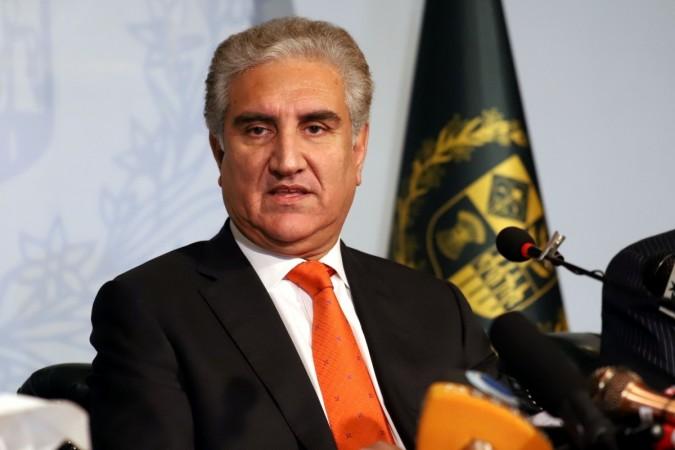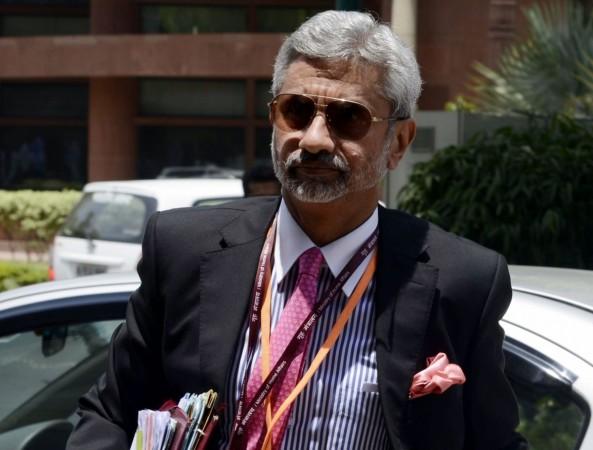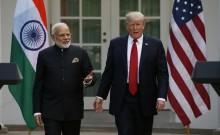Pakistan Foreign Minister Shah Mehmood Qureshi has walked out of the South Asian Association for Regional Cooperation Foreign Ministers meeting before Jaishankar's speech. He re-entered the meeting once the Indian minister's address was over.
Pakistan's action comes even as it has been continually accusing India of hampering South Asian integration and SAARC.
"It is not possible for me to sit with the murderer of Kashmiris," Qureshi told reporters after boycotting the speech, according to Pakistani media.
Earlier, Qureshi had in a statement said: "Pakistan will not engage with the 'Butcher of Kashmir' until and unless they (India) lift the siege and put an end to atrocities in occupied Kashmir."
"They must safeguard the human rights of every Kashmiri and ensure they are protected and not violated and trampled upon," he said.
Jaishankar left the meeting after his speech and avoided coming face-to-face with Qureshi.
Qureshi later returned to the meeting and spoke.

Jaishankar's address
The meeting was presided over by Nepal, the current head of the South Asian Association for Regional Cooperation and its other foreign ministers from Afghanistan, Bangladesh, Bhutan, Maldives, Nepal and Sri Lanka participated.
In his speech, Jaishankar said, "Ours is really not just a story of missed opportunities but also of deliberate obstacles. Terrorism is among them."
How does one talk to Pakistan, which uses terrorism as a "large scale industry against its neighbour" and then follows a policy of "implausible deniability", said Jaishankar, adding that it "cannot be terrorism by night and business as usual by day".
Jaishankar said that in Pakistan, "large sections have a deep antipathy towards India".
He said that Pakistan had "slowed down regionalism" by not allowing India connectivity to Afghanistan.
"The conduct of terrorism as a legitimate instrument of statecraft is not acceptable as a norm of international relations," he said, adding that no country uses terrorism "as a large scale industry against its neighbour".
"How to talk to a neighbour that follows a policy of implausible deniability. How do you address that," he asked.
To a question on "rapprochement" with Pakistan through cricketing ties, Jaishankar said that he had helped find a home base for the Afghan cricket team and was delighted to see the Afghans doing well in cricket today.
"It is difficult in real life to separate issues if you see some of the very difficult things that have happened between India and Pakistan... We had a major attack on an airbase some years ago (Pathankot), in 2016 we had an attack on a military camp (Uri) that killed a lot of people, this year we had a suicide attack that killed a lot of security personnel (Pulwama).
"If the dominant narrative of a relationship is terrorism, suicide bombings and violence, and then you say 'okay guys tea break' let's play cricket... It is a hard narrative to sell to people. And in a democracy, the sentiments of people do matter. You can't do terrorism by night and say it is business as usual by day," he said.

To a question whether India and Pakistan were "permanent enemies", Jaishankar said that "no neighbour can give up on a neighbour".
"Pakistan needs to change their position (on terror as an instrument of statecraft), not for us, but for itself. I used to be concerned about Pakistan, and still am, but now I am concerned for Pakistan. Their own self-interest mandates that they take a different tack," he said.
Jaishankar refused to speak to milling reporters asking him to comment on Pakistan's boycott.
Last year, the late External Affairs Minister Sushma Swaraj left the SAARC ministerial meeting held on the sidelines of the United Nations General Assembly after her speech.
Later speaking at a think tank, Qureshi undiplomatically made crude personal comments about her.
India refused to participate in the SAARC summit in 2016 in Pakistan after a terrorist attack on an Army base in Kashmir. It was cancelled after Afghanistan, Bangladesh and Bhutan also decided not to attend.








